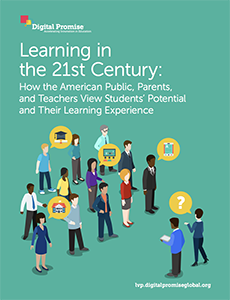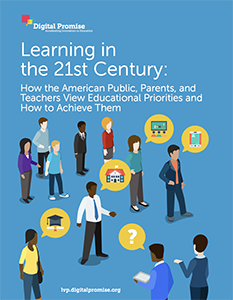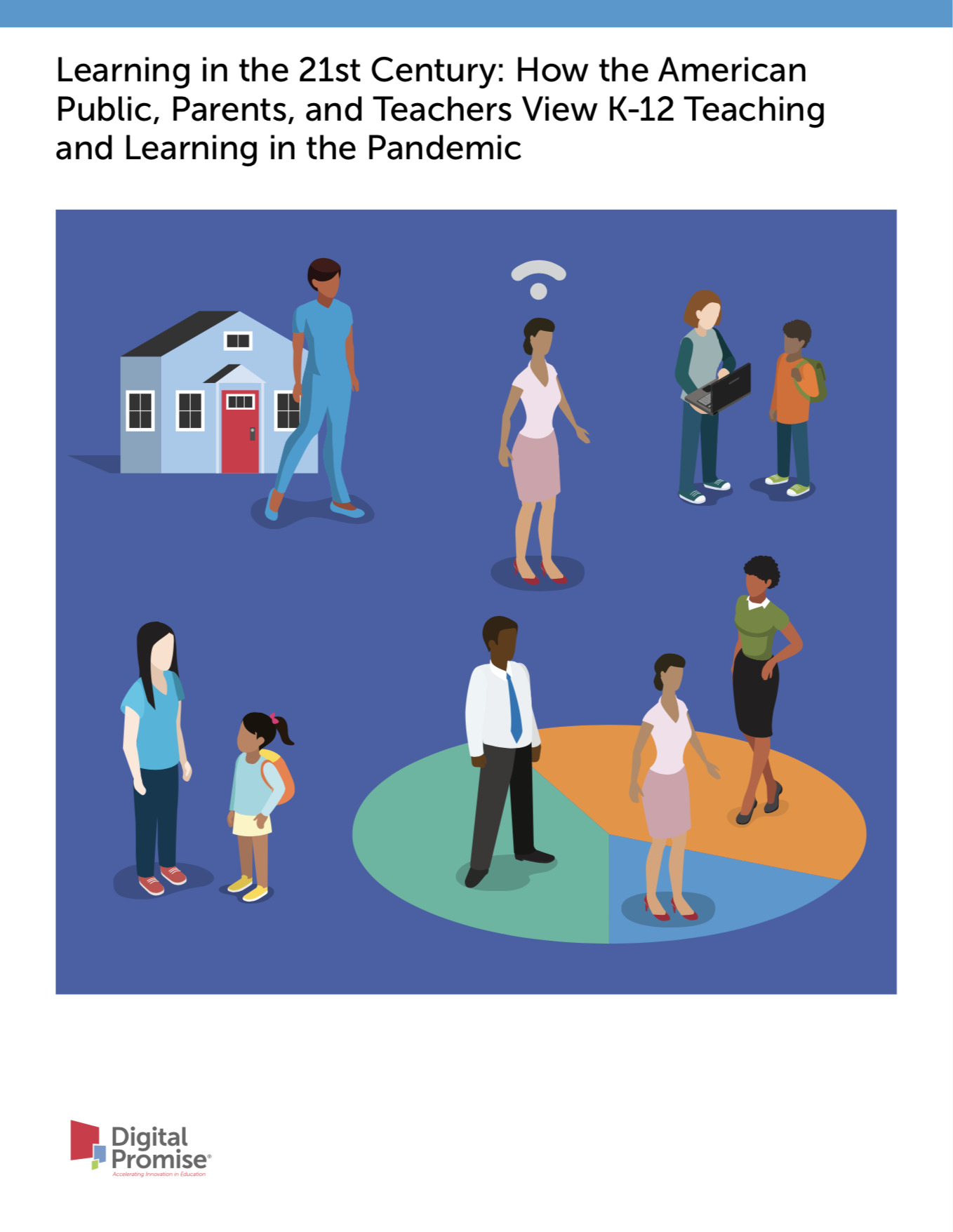 Year 1: At least 75 percent of public school parents, teachers, and the American public believe most students are capable of reaching high levels of educational achievement, according to a survey conducted by Langer Research Associates of New York for Digital Promise Learner Variability Project. This survey covers public opinion on topics including, learner variability, tailored instruction, edtech, and more.
Year 1: At least 75 percent of public school parents, teachers, and the American public believe most students are capable of reaching high levels of educational achievement, according to a survey conducted by Langer Research Associates of New York for Digital Promise Learner Variability Project. This survey covers public opinion on topics including, learner variability, tailored instruction, edtech, and more.
 Year 2: Findings in the second year of the Learner Variability Project's nationwide survey show that teachers need more time, support, and professional learning to address learner variability. Conducted by Langer Research Associates of New York, the survey also asked about the use of edtech, what matters in education, and what informs teacher practices. Comparisons are made to the first year of the survey.
Year 2: Findings in the second year of the Learner Variability Project's nationwide survey show that teachers need more time, support, and professional learning to address learner variability. Conducted by Langer Research Associates of New York, the survey also asked about the use of edtech, what matters in education, and what informs teacher practices. Comparisons are made to the first year of the survey.
 Year 3: The world was jolted in the third year of the survey, and many schools went at-home and online to avoid COVID-19. This survey explores what public school teachers, parents, and the general public believe about the impact of the pandemic on teaching and learning. Conducted by Langer Research Associates of New York, the survey finds that relationships and social emotional care are essential wherever learning occurs.
Year 3: The world was jolted in the third year of the survey, and many schools went at-home and online to avoid COVID-19. This survey explores what public school teachers, parents, and the general public believe about the impact of the pandemic on teaching and learning. Conducted by Langer Research Associates of New York, the survey finds that relationships and social emotional care are essential wherever learning occurs.